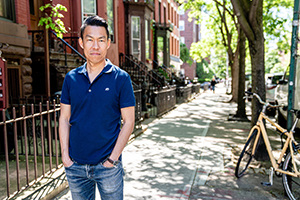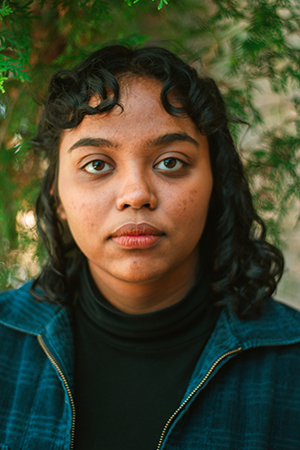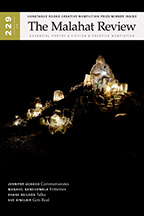Skillful Orchestration: Sarah Lachmansingh interviews Jack Wang

Fiction Editorial Board member Sarah Lachmansingh talks with Jack Wang, one of two Novella Prize judges for our 2024 contest. They discuss the editing process, writing advice, and how a novella finds the fulcrum between discipline and capaciousness.
Jack Wang is the author of We Two Alone, longlisted for Canada Reads 2022, shortlisted for the 2021 Kobo Emerging Writer Prize, and winner of the 2021 Central New York Book Award in fiction and the 2020 Danuta Gleed Literary Award from The Writers’ Union of Canada for best debut collection in English. His fiction has been shortlisted for the Commonwealth Short Story Prize and longlisted for the Journey Prize. He has received funding from the Canada Council for the Arts and the New York Foundation for the Arts and held the 2014-15 David T.K. Wong Creative Writing Fellowship at the University of East Anglia in Norwich, England. He is a professor of writing at Ithaca College in Ithaca, New York.
What interests you most about the novella as a form?
It’s often said that a novella combines the economy of a short story with the development of a novel, but “economy” and “development” can describe both form and content. Sometimes in a novella, novelistic content is given short story treatment. Other times, short story content is given novelistic treatment. And still other times, in what we might call the classically proportioned novella, medium-length content is given medium-length treatment. It’s always interesting to see how a novella finds the fulcrum between discipline and capaciousness.
What are you looking for in a winning submission?
Many who aspire to “literary fiction” think that action and event are somehow gauche. That’s because plot has been so thoroughly co-opted by popular forms of entertainment. To my mind, though, literary fiction depends on the skillful orchestration of language, character, and plot. It’s hard, actually, to make interesting things happen in plausible, artful, and psychologically astute ways. I’m open to a novella that’s unafraid to make things happen.
I see you’ve published many works, and have won awards for your writing. Do you have advice for emerging writers who are early in their publication journeys?
Isak Dinesen said, “Write a little every day, without hope, without despair.” Try to cultivate that Zen. Don’t get too high or too low. You’re neither the genius nor the failure you think you are.
I noticed you are currently working on a novel titled The Riveter. Can you share what your drafting and/or editing process is like?
I’ve worked on this novel for a long time. I wrote the first fledgling pages while I was on fellowship in England in 2014-15. Very little of what I wrote in England remains. I’ve started over a few times, thrown out hundreds of pages. The novel used to be called The Riveters, plural, which gives you a sense of how much it has changed. Even after I settled on the current storyline, I put the whole novel in chronological order before putting it back into non-chronological order, only differently. I’m glad to say I’m currently in the final stages of editing.
What have you read recently that inspired you?
Reading A Swim in a Pond in the Rain by George Saunders led me to Leo Tolstoy’s novella Master and Man. Reading Tolstoy, and reading Saunders talk about Tolstoy—hard to go wrong.

Sarah Lachmansingh









